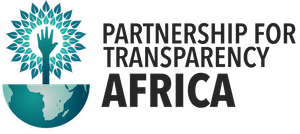
Unemployment is one of the major issues inhibiting development of Africa’s young population. A PTF-funded report by the International Governance Institute in Cameroon reveals corruption as the #1 obstacle to youth employment and development.
The World Bank estimates that around 60% of youth are unemployed in Africa. Corruption is a major obstacle for many, diverting resources for skills training, stealing opportunities from deserving candidates, and exaggerating inequalities. Likewise, corruption undermines the rule-of-law that ensures accountability and transparency required for business growth. Without a clear understanding of laws, policies, and ethical practices, or what to do to defend themselves against corruption, youth are left unsure of how to tackle these challenges.
The Municipal Council Business Management and Public Service Governance Fellowship [BMF] brings together community representatives for small businesses and local governments in Cameroon for short training courses in project management and ethical business practices. It is operated by the International Governance Institute in Cameroon also known as the IGI-Focal Governance Team (IGI-FITCAM) with the goal of helping local authorities translate national development policies into better growth prospects for ordinary citizens.
The BMF program supports young public servants in the civil service and private sectors, unskilled small business operators and young entrepreneurs, who desire to improve their competencies in business management and local governance for the sustainable development of their communities. It was piloted with the Buea municipality starting in July 2016, training nearly 300 participants.
After witnessing program success, PTF provided a modest grant to IGI-FITCAM to document what the BMF graduates learned and applied in their daily work. This information is intended to identify the continuing challenges for young workers, especially in the informal sector and solicit suggestions for course update and next steps to take the program forward.
The study provided insight into the challenges for young people in Cameroonian society, who singled out corruption as the major challenge facing new entrants into the job market and public service. In fact, 89% of respondents said they had experienced or witnessed corruption of some sort while seeking employment. About 85% of participants who attended the BMF agreed their skills to deal with these challenges and nearly half strongly agreed that the program had a significant impact on social change in their community.
Some of the other issues facing new entrants into the public service identified, that will require training and learning on anti-corruption, as well as, legal and regulatory interventions to mitigate include: ineffective governance in public service; corruption in public service; harassment by employers; lack of self-confidence; godfatherism; absence of mentoring/coaching; sexual abuse; and tribalism and discrimination.
The results of the study are particularly important for PTF, IGI and its partners as we look into new ways of engaging ordinary citizens and public institutions to improve government performance. See more about our work with youth or donate to the cause.




Post a comment